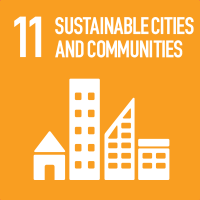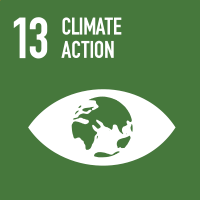Studying at the University of Verona
Here you can find information on the organisational aspects of the Programme, lecture timetables, learning activities and useful contact details for your time at the University, from enrolment to graduation.
Type D and Type F activities
This information is intended exclusively for students already enrolled in this course.If you are a new student interested in enrolling, you can find information about the course of study on the course page:
Laurea in Scienze della comunicazione - Enrollment from 2025/2026SOFT SKILLS
Find out more about the Soft Skills courses for Univr students provided by the University's Teaching and Learning Centre: https://talc.univr.it/it/competenze-trasversali
CONTAMINATION LAB
The Contamination Lab Verona (CLab Verona) is an experiential course with modules on innovation and enterprise culture that offers the opportunity to work in teams with students from all areas to solve challenges set by companies and organisations.
Upon completion of a CLab, students will be entitled to receive 6 CFU (D- or F-type credits).
Find out more: https://www.univr.it/clabverona
PLEASE NOTE: In order to be admitted to any teaching activities, including those of your choice, you must be enrolled in the academic year in which the activities in question are offered. Students who are about to graduate in the December and April sessions are therefore advised NOT to undertake extracurricular activities in the new academic year in which they are not enrolled, as these graduation sessions are valid for students enrolled in the previous academic year. Therefore, students who undertake an activity in an academic year in which they are not enrolled will not be granted CFU credits.
| years | Modules | TAF | Teacher |
|---|---|---|---|
| 1° 2° 3° | FAI Activities | F |
Edoardo Bianchi
(Coordinator)
|
| 1° 2° 3° | Series of conferences Don Nicola Mazza University College | F |
Alessandra Zangrandi
(Coordinator)
|
| 1° 2° 3° | Science communication | F |
Luca Ciancio
(Coordinator)
|
| 1° 2° 3° | Intercomprehension laboratory between the Romance languages | F |
Alessandra Zangrandi
(Coordinator)
|
| 1° 2° 3° | Laboratory of radio languages | F |
Simona Brunetti
(Coordinator)
|
| 1° 2° 3° | Worlds of Fashion: Themes and Actors | F |
Alessandra Zamperini
(Coordinator)
|
| 1° 2° 3° | History of comics | F |
Claudio Gallo
(Coordinator)
|
| 1° 2° 3° | University and DSA - Methods and strategies for tackling study and university studies | F |
Chiara Melloni
(Coordinator)
|
| years | Modules | TAF | Teacher | |
|---|---|---|---|---|
| 1° 2° | TAUV. Garden of Printing Press | F |
Anna Bognolo
(Coordinator)
|
|
| 1° 2° 3° | FAI Activities | F |
Edoardo Bianchi
(Coordinator)
|
|
| 1° 2° 3° | Cities and Freedom | F |
Olivia Guaraldo
(Coordinator)
|
|
| 1° 2° 3° | Festival of journalism | F |
Simona Brunetti
(Coordinator)
|
|
| 1° 2° 3° | Day of remembrance and Day of memory | F |
Renato Camurri
(Coordinator)
|
|
| 1° 2° 3° | Gli animali nella/della fantascienza. rappresentazioni ed espressioni del non-umano nella narrativa speculativa | F |
Valentina Romanzi
(Coordinator)
|
|
| 1° 2° 3° | Laboratory of Theatrical Criticism | F |
Monica Cristini
(Coordinator)
|
|
| 1° 2° 3° | Gnoseology and Metaphysics Workshop 2025 | F |
Davide Poggi
(Coordinator)
|
|
| 1° 2° 3° | Intercomprehension laboratory between the Romance languages | F |
Alessandra Zangrandi
(Coordinator)
|
|
| 1° 2° 3° | Journalistic Writing Laboratory | F |
Andrea Capuzzo
(Coordinator)
|
|
| 1° 2° 3° | University and DSA - Methods and strategies for tackling study and university studies | F |
Chiara Melloni
(Coordinator)
|
|
| years | Modules | TAF | Teacher |
|---|---|---|---|
| 1° 2° 3° | Bridge film festival (XI Edition) | F |
Alberto Scandola
(Coordinator)
|
| 1° 2° 3° | International Conference: | F |
Silvia Baroni
(Coordinator)
|
| 1° 2° 3° | International Conference “Rudolf Nureyev and Literature: Dance, Choreography, and Reception” | F |
Laura Maria Colombo
(Coordinator)
|
| 1° 2° 3° | News articles from Veronetta Contemporanea Festival 2024 | F |
Nicola Pasqualicchio
(Coordinator)
|
| 1° 2° 3° | Festival teatrale “festivabilia” il teatro delle attività | F |
Alberto Scandola
(Coordinator)
|
| 1° 2° 3° | Identity, power, and gender through clothing | F |
Alessandra Zamperini
(Coordinator)
|
| 1° 2° 3° | OMI 2024 - jury | F |
Mario Magagnino
(Coordinator)
|
| 1° 2° 3° | “SaM – Shakespeare and the Mediterranean – The Twin and the Mirror: The Comedy of Errors and Twelfth Night” Summer School | F |
Silvia Bigliazzi
(Coordinator)
|
| 1° 2° 3° | Verona in Storia Cycle of public lectures | F |
Giovanni Bernardini
(Coordinator)
|
Journalistic Writing Laboratory (2023/2024)
Teaching code
4S007366
Teacher
Coordinator
Credits
3
Language
Italian
Scientific Disciplinary Sector (SSD)
NN - -
Period
CuCi 2 A dal Feb 19, 2024 al Mar 29, 2024.
Courses Single
Authorized
Learning objectives
The Journalistic Writing Laboratory is dedicated to newspaper articles in its different forms. At the end of the lessons, students will become familiar with the different types of journalistic prose (news, investigation, interview, reportage, costume article, editorial, etc.) and will be able to write an original piece of writing that complies with needs and standards of the textual genre.
Prerequisites and basic notions
Good knowledge of the Italian language, interest in writing in its various types, willingness to actively participate in lessons.
Program
LABORATORY ARGUMENT
Write a newspaper article.
CONTENTS
1. Analysis of the different types of journalistic article (news, report, interview, reportage, article of custom, editorial, etc.)
2. Identification of communicative, linguistic and expressive techniques adapted to the various types of journalistic writing.
Didactic methods
Lectures, delivered in presence, and exercises carried out through written papers.
The reading and guided analysis of significant examples of journalistic prose will be accompanied by the writing and discussion of articles written by the students. The texts used will be uploaded to the e-learning platform. Bibliographic references will be communicated each time during the lessons.
N.B. The course is reserved for attending students only. For educational reasons, no more than 60 students will be admitted to attend the Laboratory, in order of enrolment. To take the final exam it will be necessary to have attended at least seven lessons out of nine. Attendance will be validated by the receipt by the teacher on the e-learning platform of at least seven articles out of the nine scheduled lessons.
Learning assessment procedures
The final exam is reserved only for students who have attended the laboratory face to face and will consist of a written test. This test will focus on the forms of journalistic writing examined during the course.
Students will have to write a journalistic article of a specific type starting from one of the tracks proposed by the teacher; they will therefore have to demonstrate familiarity with the types of writing analyzed, trying, at the time of writing their article, to differentiate their style according to the topic dealt with, the communication purpose required and the audience to which the action of the information source is directed.
There is also an intermediate test, which will focus on the first part of the course and which will allow access to the final exam.
Evaluation criteria
1. relevance to the assigned topic;
2. richness of content, coherence and organic nature of the discourse;
3. morphosyntactic correctness and lexical property.
4. stylistic register appropriate to the textual genre used.
Criteria for the composition of the final grade
The evaluation will be given by the simple approval or non-approval of the final paper (which will be uploaded to the platform at the end of the lessons) based on its compliance with the writing criteria highlighted in the course. The evaluation of the final test will be followed by the verbalization of the outcome of the Journalistic Writing Laboratory, according to the proposed calendar.
Exam language
Italiano




